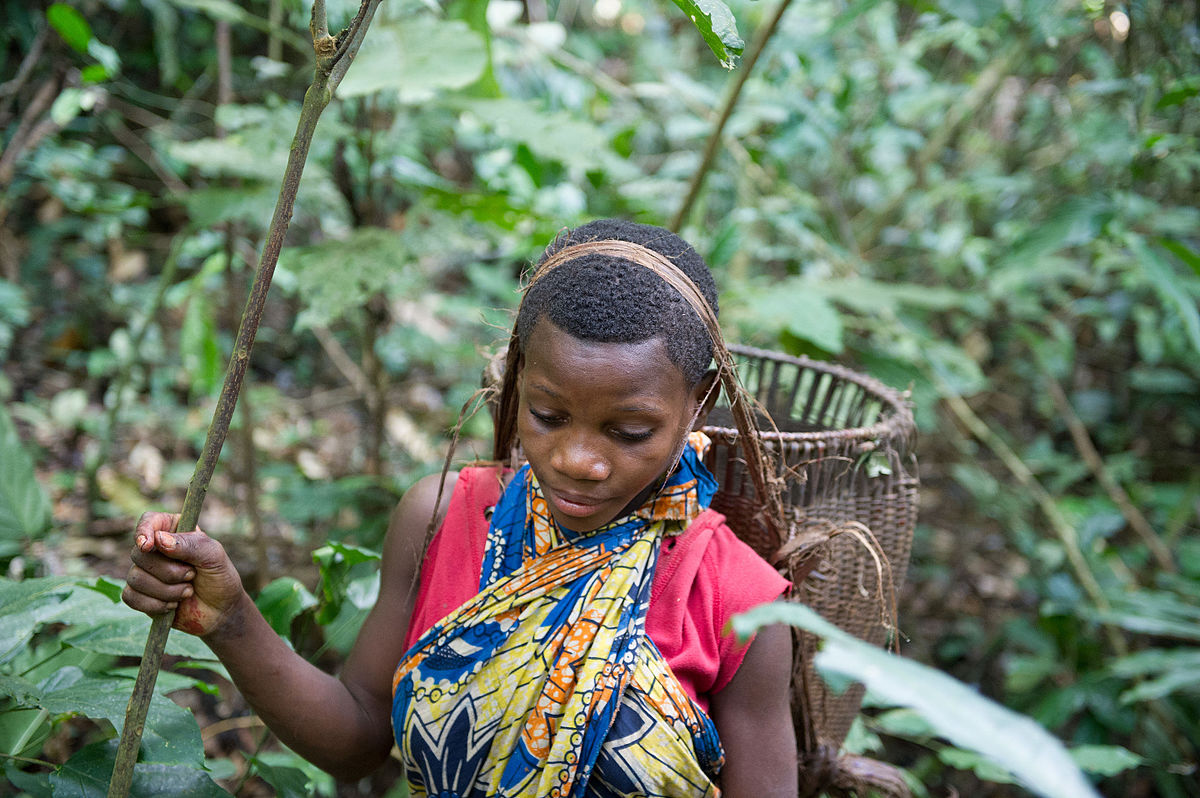Photo via Wikimedia Commons
BACKGROUND
The loss of natural forests through deforestation and forest degradation is estimated to now account for about one fourth of total global greenhouse gas (GHG) emissions (Smith P. et al. 2014). Forests not only serve as an essential carbon “sinks”, they also provide livelihoods, subsistence and income for more than 1.6 billion of the global poor. (UNDP, 2017). Those who rely on forests for their livelihoods are among the poorest people on the planet, and they are disproportionately women.
Growing literature indicates that gender-based barriers exist across major international and national policy processes. The needs and contributions of women in African forestry are often overlooked while the inequalities of their roles, rights and responsibilities shape the ways they participate in decision making benefit from forest and tree resources, and ability to cope with the adverse effects of the changing climate. The empowerment of women through education, continuous learning and information sharing offers a potential pathway for inclusion in higher-level institutional decision-making in the forestry sector.
As identified in the AFF Knowledge Management Strategy (2021-2025)[1], Communities of Practice (CoPs) can serve as an efficient and easily accessible way for information sharing and learning. Communities of Practice are active networks whose members are interested in learning about the same topics (FAO,2016) and, as such, can draw on AFF’s membership to advance knowledge sharing, innovation and the uptake of best practices to solve critical problems. Applied to gender equality and social inclusion in forestry related challenges, functional communities of practice allow a geographically and professionally women-led audience to tackle the complexity of issues needed to support sustainable and equitable development solutions
OBJECTIVE
Under the supervision of the Executive Secretary, an online regional facilitator is required to guide, engage, capture the views, findings, and recommendations of an AFF Community of Practice on ‘Advancing women in African forestry’ via Zoom as well as an e-discussion platform located on the intranet.
SCOPE OF WORK
The discussions will coincide with key workshops, meetings or forums and launched by the Executive Secretary of the African Forest Forum (AFF) to boost participation. The key tasks of this assignment will be to:
- Develop a concept note, programme and presentations on sub-topics for the online discussion forum
- Guide and engage a broad range of stakeholders to enrich the global conversation on gender equality in African forestry.
- Collaborate with AFF Secretariat to tailor discussion topics in line with project plans.
- Provide input on relevant networks, individuals and institutions specific to the area of focus and invite to participate in the online discussions.
- At the end of each discussion, draft and post a daily summary note.
- Actively guide the discussion to ensure it remains focused on the agenda, discussion questions and draft the final summary report (5 pages maximum).
- Daily tasks required during the e-discussion – 2-3 hours per day (two weeks in total per topic):
- Welcome participants to the e-discussion and on the AFF intranet (location for hosting space).
- Introduce the topic, rules of engagement, emphasize deadlines and drive discussions to address any open/pending issues.
- Prepare and deliver presentations and posts to the discussion.
- Respond within 24 hours to all inappropriate behaviour (in consultation with the Senior Communications Officer, AFF)
- Provide encouragement to drive the discussion when no contributions have been posted, by posing questions, contacting members directly through the platform, posting complementary content such as documents, sites and text.
DELIVERABLES
The consultant will be expected to deliver the following outputs:
- Concept note, programme and participants list for the two-week Community of Practice.
- Up-to-date virtual ‘space’ with relevant content;
- 50-100 comments generated during the two-week e-discussion (per topic).
- Useful resources for the e-discussion uploaded and shared regularly.
- Final report of e-discussions and posted within 2 weeks of the end of the e-discussion period.
MINIMUM QUALIFICATIONS AND SKILLS
The online discussion moderators must have the following qualifications and skills:
- At least a master’s degree in forestry or natural resource management with experience in gender studies, forest planning and forest management; a PhD will be an advantage.
- At least five years’ working experience in gender equality, social inclusion and/or sustainable forest planning and management.
- Have written at least a book chapter, and/or published peer reviewed journal papers on gender in forestry and/or related topics.
- Excellent writing and oral communication skills in English. Knowledge of French is an additional advantage.
DURATION OF ASSIGNMENT
The work is expected to take two (2) weeks spread over a period of one (1) calendar month, commencing on 13 June 2022. Online regional facilitator shall work from their locations but be in close consultation with relevant staff at the AFF Secretariat while keeping to an agreed delivery schedule.
DEADLINES
- Applications must be received by the AFF Secretariat on or before 30 May 2022.
- Consultancy activities must begin no later than 13 June 2022.
HOW TO APPLY
Please email your application to AFF, attaching: Cover letter stating how you meet the above qualifications and experience requirements; An updated CV. Indicate the subject line: “Consultancy: Online regional facilitator for Community of Practice on ‘Advancing women in African forestry’” to d.gitonga@cgiar.org with a copy to m.avana@cgiar.org and exec.sec@afforum.org. Only successful applicants will be contacted.
To download the Terms of Reference, click here.

